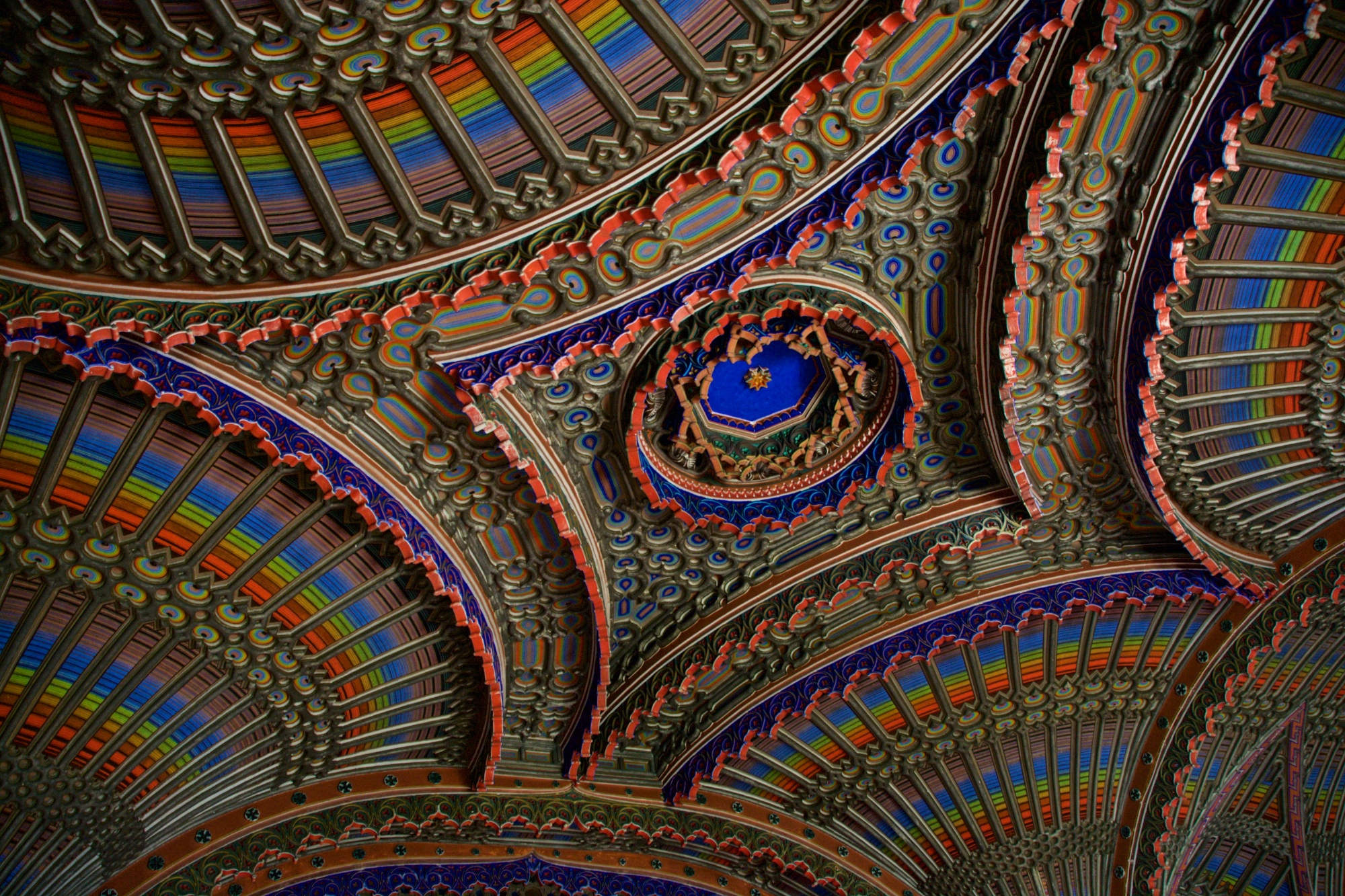Sammezzano Castle
A mysterious and fascinating place in Moresque style
Sammezzano Castle is one of the most mysterious and fascinating places in Tuscany.
Built in the mid-nineteenth century as a monument to oriental art by the Marquis Ferdinando Panciatichi Ximenes d'Aragona, Sammezzano is an incredible mix of Arabesque elements inspired by the Alhambra in Granada, Masonic and even Indian symbols: majestic arches, finely inlaid walls, arabesques, rooms theme and a breathtaking assortment of patterns and colors that can make your head spin.
Between 1853 and 1898, the Marquis threw up his enormous substances to create this amazing kaleidoscope of oriental suggestions in Reggello, not far from Florence. Using only local workers (the kiln for ceramic majolica was placed in the park around the building) the Castle has grown year after year, hand in hand with the isolation of the Marquis.

The castle has 365 rooms, one for every day of the year and each room has its own name and differs from the others.
The sumptuous Atrium of the Columns, with the relief of some pomegranates, leads to the vast Rotonda, an octagonal ballroom overlooked by the fifteen guest rooms, built entirely in Mudejar style.
There is the Room of Love and that of Mirrors, from the vault of which hundreds of muquarnas, the small stalactites typical of Islamic architecture, hang. The colorful "Indian" classrooms, such as that of the Gigli and - the most famous - immersed in bundles of bright psychedelic rainbows - the Peacock Room. And more: the White Room with Moroccan mosaic tiled floors and wrought iron chandeliers hanging from the ceilings, the Hall of Lilies, and also a small chapel.
In these spaces there are hidden niches, corners, windows, columns, labyrinthine paths, capitals, arches, vaults and domes.

Sammezzano Castle is surrounded by a parkland of 450 acres, one of the largest in Tuscany. The park dates back to the mid-nineteenth century and was built by Ferdinand Panciatichi who planted a large number of exotic tree species and added architectural elements in the Moorish style. Only a small part of the trees survived (but there is a restoration project in place) and the park still hosts the largest group of giant sequoias in Italy.
For its spectacular interiors, the Sammezzano has often been chosen by directors as an exceptional location for their films, such as Matteo Garrone who set here some scenes of his "Tale of Tales" with Selma Hayek.
The Castle is currently closed to the public.







